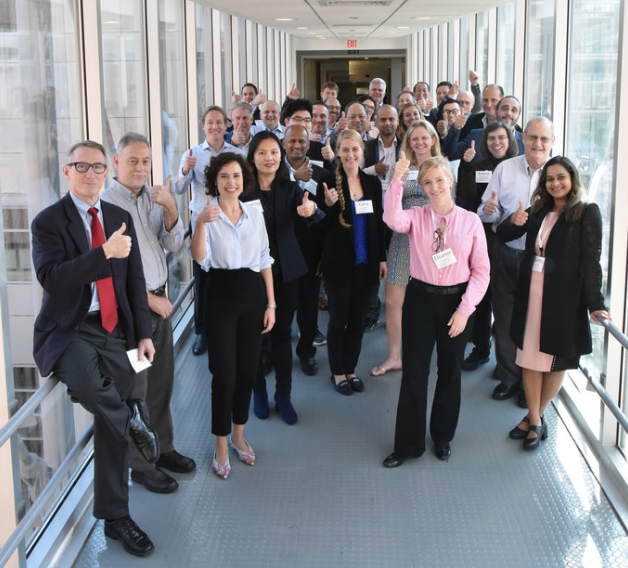November 14, 2018 at 8:00AM - November 15, 2018 at 12:00PM
This MIT CTL Roundtable is exclusively for members of the MIT CTL Supply Chain Exchange and invited guests. If you are not a member of the Supply Chain Exchange and are interested in attending this roundtable, please reach out to Katie Date at <datecl@mit.edu>.
Location: MIT E40-356 (SCM Lab)
Register | FAQ | Agenda
Many Factors Affecting Retail Operations
Across the globe, data show that retailers have been changing rapidly due to multiple factors. First, high population densities in urban areas limit the areas in which large retailers can be built, forcing market players to open small, easily accessible retail stores. This, in turn, causes the fragmentation of urban distribution networks, leading to frequent deliveries in smaller volumes and increased logistics costs. In addition, the evolution of the retail footprint depends on diverse consumer socioeconomic backgrounds and profiles, and other trends. These factors should be used to design tailored logistics strategies, high-performance retail operations, and collaborative supply chains. This strategy will couple the dynamic retail environment and help stakeholders achieve a long-term competitive advantage.
MIT SCALE Network Roundtable
The MIT Global SCALE Network is committed to addressing the economic and social impacts of the ever-changing retail landscape. Given this existing and growing dynamism in the retail industry, the objective of this roundtable is to bring together key stakeholders (i.e., suppliers, logistics service providers, manufacturers, and consumers) to better understand the challenges considering global perspectives from across the SCALE Network. In addition, we will discuss the best way to generate productive supply chain solutions across various stakeholders considering operations of diverse retailers, going from the big-box chained retailers to the nano-stores.
The future of retail will be driven by multiple trends such as technology, demographics, macro- and microeconomics. On the one hand, this future will be related to the way in which each stakeholder shapes his/her role, operations and collaborative schemes into the retail-based supply chains to improve the performance of the whole value chain. On the other hand, this future will be linked to how consumer profiles, preferences are coupled with the retail landscape and the way in which all retailers adopt and adapt their logistics strategies (e.g., replenishment, transportation, procurement) to changing market conditions (such as the entry or exit of a competitor and the evolution of consumer features).
In addition, practitioners need to address a number of more specific issues such as:
- Designing high-performance in-store and retail supply chain operations to guarantee availability and the optimal mix of products per geographic region
- Understanding core drivers of consumer profiles and retailer features in fiercely competed markets
- Analyzing the evolution of purchasing patterns in the SC stakeholders and the dynamic retail market
- Developing the best combination of inbound transportation and delivery alternatives to retailers and end consumers
- Fostering synchronization and building collaborative schemes for the retail industry
- Driving the most effective technologies and enablers from digital transformation into the retail industry
- Building the capability to collect, analyze reliable data to improve supply chain decision making in the retail industry
- Facing the main challenges in implementing an omnichannel strategy in retail supply chains.
Roundtable Six Key Topics:
- Retail operations and supply chains
- Diversification and competition in the retail footprint
- Coupling the dynamic consumer behaviors and the evolving retail SCs
- Transportation and delivery strategies in retail
- Digital transformation and collaboration in retail
- E-commerce and omnichannel strategies in retail SCs
The target audience for this roundtable includes supply chain professionals, large global retailers, food chains, CPG manufacturers, multi-stakeholder groups, logistics-service and technology providers, retail federations and associations, and governmental-related institutions
This MIT CTL Roundtable is for members of the MIT CTL Supply Chain Exchange and special guests. If you are not a member of the Supply Chain Exchange and are interested in attending this roundtable please reach out to Katie Date datecl@mit.edu.
MIT CTL roundtables are highly interactive events where participants learn from each other. There are no PowerPoint presentations and attendance numbers are carefully managed – the emphasis is on generating a rich discourse in an open environment.
Register | FAQ | Agenda
Image from previous MIT CTL Roundtable.
